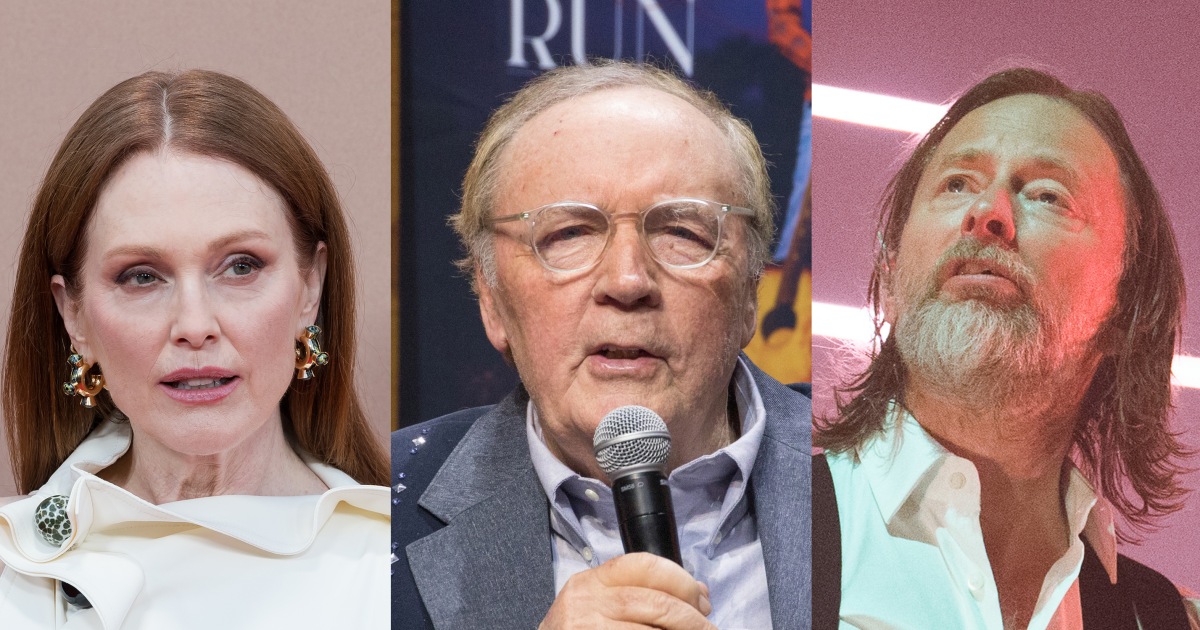At least 11,500 creative professionals — including Oscar-winning actress Julianne Moore, author James Patterson and Radiohead’s musician Thom Yorke — have signed an open letter calling for the prohibition of using human art to train artificial intelligence without permission.
“The unlicensed use of creative works for training generative AI is a major, unjust threat to the livelihoods of the people behind those works, and must not be permitted,” the one-line statement, which isn’t addressed to anyone in particular, reads.
The lack of federal regulation around generative AI amid its rapid proliferation has contributed to a growing maelstrom of confusion and criticism around what datasets AI companies are using to train their models. Artists and companies in recent years have called out these tech giants and startups for allegedly scraping their work without their knowledge or consent.
Ed Newton-Rex, a composer and former executive at Stability AI, said this movement for regulation comes at a critical time for creatives worldwide as legal battles and legislation over unlicensed AI training continue to unfold.
“Lots of generative AI companies train on creators’ work without a license to do so,” said Newton-Rex, who founded Fairly Trained, a nonprofit that certifies generative AI companies that use consensual training data. “This is a major issue for many of the artists, musicians, actors, authors and other creators whose work is being exploited by AI companies.”
The letter has racked up hundreds more signatories in the hours since it went public on Tuesday.
Actress Fran Drescher, president of SAG-AFTRA, the labor union that represents thousands of Hollywood actors, was among the signatories. Dozens of organizations, including major publishing houses and music labels, signed the letter as well.
The potential for generative AI to replace human labor remains a pressing concern for actors and video game performers, as well as others in the industry.
Publishers like The New York Times and The Wall Street Journal have sued AI companies such as OpenAI and Perplexity AI for copyright infringement. Others, like Condé Nast and Hearst, have instead struck content deals with OpenAI — allowing its products, including ChatGPT and SearchGPT, to display content from the companies’ media outlets.
The world’s biggest record labels also teamed up in June to take two prominent AI music-making companies to court, alleging that they trained their models on decades’ worth of copyrighted sound recordings without consent.
The proliferation of accessible AI tools capable of generating realistic media — including full songs, music videos and advertisements — has triggered a slew of legal and ethical questions for artists. Many artists have expressed concern over how generative AI technologies could undermine human work and compensation, including by replicating celebrities’ likenesses without their consent.
Earlier this year, Drake removed a diss track from the internet after Tupac Shakur’s estate threatened to sue him for allegedly using the late rapper’s AI-generated voice in the song. AI-generated advertisements have also used the likenesses of public figures such as Taylor Swift, MrBeast, Scarlett Johansson and Morgan Freeman to promote various products.
For now, no comprehensive legislation exists in the United States to regulate the development of AI, but several states have begun introducing bills to propose specific regulations, particularly around deepfakes. Last month, California passed into law two bills aimed at protecting actors and other performers from unauthorized use of their digital likenesses.

Leave a Reply